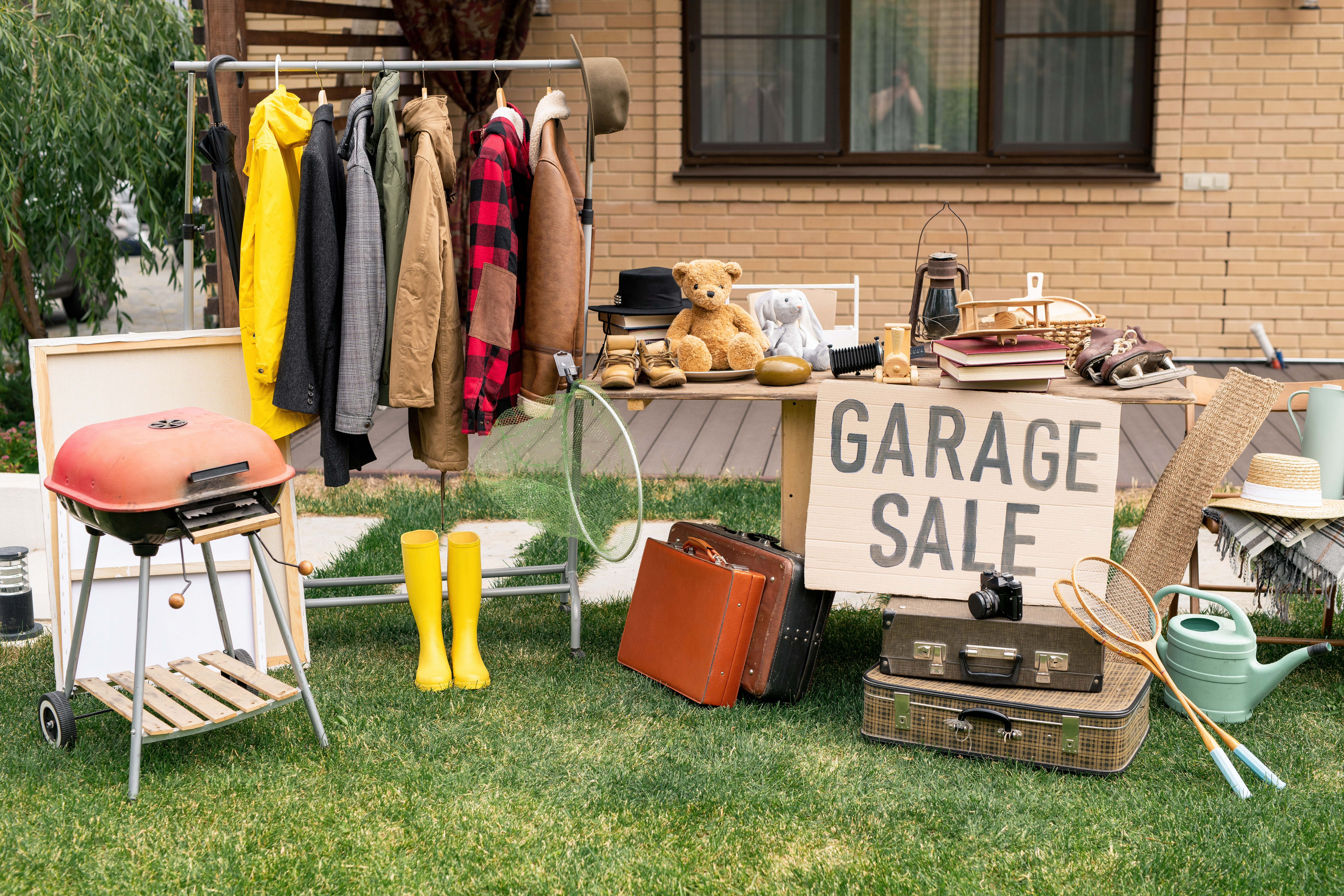
Buying stuff used can be a great way to save money. But it’s not always worth it.
If you opt for a lightly used car with just a few hundred miles on it, for example, you could save thousands — and still enjoy the benefits of a “new” car.
On the other hand, if you buy a used mattress that causes you back pain and brings a bedbug infestation into your home, the costs will outweigh the benefits.
To help you decide when buying new is better, keep reading to discover 12 things you should never buy used. But first, read about the pros and cons of secondhand shopping.
What Are the Disadvantages of Buying Stuff Used?
When you buy used items, you face a few potential drawbacks. They come with wear and tear, which can impact the functionality and safety of an item.
In addition, if something goes wrong with the item you often won’t have a warranty or the option to return it. Plus, you’ll have to invest time and effort into hunting down, vetting and negotiating the price of what you’re buying.
[See: Best Buy and Sell Apps for Used Stuff.]
Is It Good to Buy Stuff Used??
In some cases, it can be great to buy stuff used. You can save money and get the items you need. You may also be able to find a used item with character or features you can’t find in a new one. Plus, buying used items is a form of recycling that can help reduce waste and benefit the environment.
If you decide to buy used stuff, there are some great deals to be had. That said, here are 12 things you should never buy secondhand:
1. Mattresses
Don’t purchase used mattresses.
A used mattress presents a few issues. On the sanitary front, you can’t wash an entire mattress. Additionally, they can be home to pests, allergens, mold, mildew, bodily fluids and bacteria.
On the functionality front, manufacturers design mattresses to provide proper support for your body while you sleep. Used mattresses may have outdated technology or degraded internal structures that can cause alignment problems and pain.
By opting for a new mattress, you can gain peace of mind that your bed is clean, able to provide proper support and backed by a warranty if something goes wrong.
2. Car Seats
A car seat is another item you want to purchase new.
“Car seats can become compromised and ineffective at protecting your kid once they’ve already been in one car crash, even if they look fine. They also expire, and it can be hard to tell if used ones are past their expiration dates,” says Hillary Swetz, owner of the frugal lifestyle website (and YouTube channel) Homegrown Hillary.
That said, you may still want to snag a used car seat if you see one at a great price, according to Swetz.
“Here’s my trick if I come across a used car seat, though. I’ll hang onto it and wait for Target to have its car seat recycling program. Once or twice a year, Target will offer 20% off coupons for baby gear if you recycle one car seat with them. Then, you can just get a new car seat or high chair, crib or whatever,” she says.
[Related:Top Amazon Prime Day Deals 2023]
3. Personal Hygiene Products
Avoid buying preowned personal hygiene products.
Personal hygiene products such as razors, toothbrushes, nail clippers, makeup, body brushes, lotion and washcloths are best bought new.
They can harbor bacteria, fungi and more, which can cause health issues. Additionally, they may be well past their expiration dates and unsafe to use.
4. Helmets
You should not buy used helmets for skiing, bicycling or other uses.
Helmets serve the important purpose of protecting your head and brain should you get into an accident. They are designed to last a certain number of years and absorb a single serious impact.
When you buy a used helmet, you don’t know how many impacts it’s absorbed and if it’s expired. While damage to the outer shell of a helmet is a clear red flag, you can’t see if the inner shell is compromised.
5. Upholstered furniture
You should also avoid buying used upholstered furniture.
“That means no futons … sorry, college kids. No sofas, loveseats, overstuffed chairs or loungers. And I’m not just saying that because bedbugs are an actual concern. These pieces get used and abused. Odors, stains and whatever else from food to fluids get on them, making them pieces of furniture you do not want in your home,” says Bonnie Borromeo Tomlinson, author and expert on interior decorating and home organizing.
6. Intimate apparel
Think twice before buying secondhand intimate apparel.
Buying used intimate apparel can also present hygiene issues.
“As a retail business owner, I would not buy or sell used bras, underwear, lingerie or swimwear. The buyers and staff members do not like handling these items for sanitary reasons and there is not a high demand for these items secondhand,” says Carmen Lopez, fashion expert and founder of Current Boutique, an online and brick-and-mortar consignment store.
7. Electric blankets
Steer clear of purchasing used electric blankets.
While electric blankets can be warm and cozy on cold winter nights, they pose serious safety risks to their owners.
New electric blankets are typically safe when used as recommended but you should have an electrician test them every two years and throw them out after 10.
Also, if you buy one used, you won’t know how old it is and if there’s wire damage that can cause it to overheat and start a fire.
[Related:12 Best Discount Shopping Apps]
8. Pillows and bedding
Don’t buy used bedding and pillows. Like used mattresses, secondhand pillows and bedding items are breeding grounds for pests, mold and more. They are also highly susceptible to stains from bodily fluids.
Because you bring these items into the sanctuary that is your bed — and because you can often find them at affordable prices — it’s best to buy them fresh and new.
9. Stuffed animals
Avoid buying used stuffed animals. While cute and cuddly, used stuffed animals can be problematic.
They’re magnets for dust, mites and allergens, and can be breeding grounds for lice, bedbugs and bacteria. In addition, when a previous owner has loved them well, pieces such as buttons and eyes can become loose and present choking hazards for the new owner.
10. Nonstick cookware
Avoid buying nonstick cookware on the secondhand market.
Nonstick coatings on cookware can be an issue for humans and the environment. They often contain per- and polyfluoroalkyl substances (PFAS), which break down very slowly in the body and can cause lowered immunity, kidney disease and other health problems. Used nonstick cookware often has dents and scratches, which can increase that risk.
11. Surge protectors
Think twice before buying used surge protectors.
Surge protectors play an important role in preventing damage to electronic equipment. Used protectors, however, may have unseen damage that can limit their ability to protect against surges and lead to fires.
It’s best to shell out the $15 or so bucks for a new surge protector. Experts also recommend replacing them every two years — and perhaps sooner — depending on the number of surge events you experience.
12. Rugs
While you may find a used rug at a great price, think twice before buying it.
Rugs are magnets for dirt, debris, grime, unpleasant odors and infestations. They are also pricey to clean. On average, it costs between $150 and $600 to have a typical 8×10 area rug cleaned, according to Home Advisor. You should be able to find a new one for that price.
More from U.S. News
12 Ways to Stop Spending Money
13 Items That Sell on eBay, Craigslist and Facebook Marketplace
Money Habits to Start Right Now
12 Things You Should Never Buy Used originally appeared on usnews.com
Update 06/30/23: This story was published at an earlier date and has been updated with new information.







